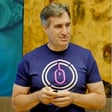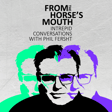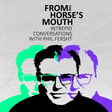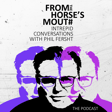
TikTok, Tariffs, and Tech Wars: Phil Fersht pods with Fareed Zakaria
Global alliances are shifting. Tech stacks are splitting. And social media is reshaping democracy in real time. In this electrifying episode, Fareed Zakaria, a renowned journalist, CNN host, and global affairs analyst, joins Phil Fersht to unpack the messy intersection of politics, AI, and power.
What You’ll Hear in 30 Minutes
- Why Fareed says global allies are hedging their bets on America
- The new Cold War over tech stacks: Chinese vs. non-Chinese
- Social media’s algorithmic grip on democracy
- Are we facing the systemic breakdown of compromise?
- Why the next election might hinge on a TikTok
- Urban America’s affordability crisis: housing, healthcare, education
- What Gen Z’s radical turn means for politics
- How Fareed is fighting back against digital distraction (spoiler: karaoke is involved)
Guest Snapshot
Fareed Zakaria is a globally recognized journalist, author, and host of CNN’s Fareed Zakaria GPS. Known for his razor-sharp commentary on international affairs, economic policy, and technology, Fareed has been a leading voice on globalization, democracy, and disruption for decades. His work appears in The Washington Post, CNN, and bestselling books like The Post-American World and Ten Lessons for a Post-Pandemic World.
Timestamps
00:00 – Welcome and Introduction
00:36 – Global Alliances Are Fraying
02:41 – The Bipolar Tech Stack: US vs. China
04:42 – Nvidia, Intel, and Chips in Geopolitics
06:44 – Democracy, AI, and the Social Media Machine
09:45 – Charlie Kirk, Virality, and Political Radicalization
13:05 – The Power (and Danger) of Algorithms
15:40 – Is the American Dream Still Alive?
18:30 – The Urban Crisis of Affordability
20:22 – Why Gen Z is Embracing Radical Ideas
21:59 – How social media is Rewiring Our Brains
24:20 – Deep Work, Human Connection, and Staying Sane
26:30 – Fareed’s Final Reflection
Explore More
Related Episodes:








